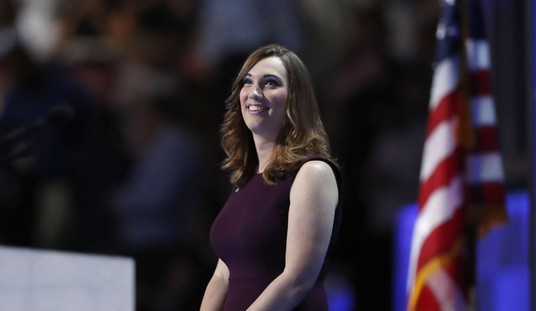Editor’s Note: This is the third in a series of interviews and story excerpts spotlighting some of the most innovative fiction writers at the recently-launched new media publishing platform Liberty Island. Please check out this interview Sarah Hoyt conducted with CEO Adam Bellow here to learn more: “It also has a unique mission: to serve as the platform and gathering-place for the new right-of-center counterculture.”
Will Collier was one of the first bloggers on the internet, founding the “Will’s World” site in 1997, long before the word “blog” was coined. From 2004-2008, he was a major contributor to the high-traffic VodkaPundit.com blog, where his work was quoted by the BBC, CNN, and the Washington Post, among others. Will is the co-author of The Uncivil War (Rutledge Hill Press, 1995), became a featured college football columnist for Rivals.com in 2001, and maintains his own sports blog, FromTheBleachers.com. His work has appeared in the Atlanta Journal-Constitution, the Birmingham News, the Birmingham Post-Herald and National Review Online. He is currently a columnist for Rivals.com, contributor to PJ Media, and his “main” blog is WillCollier.com. Will earned degrees in aerospace engineering from Auburn University and the University of Texas, and lives in metro Atlanta with his wife and their spoiled bullmastiff.
1. Who are some of your favorite writers, books, movies, and intellectual influences?
As a writer I am very much one of “Heinlein’s Children” when it comes to fiction, with a heavy dollop of Clarke’s short stories added to my early development. I remain in awe of Harlan Ellison as a fiction writer and essayist (for years and years I avoided his short fiction out of fear that I’d be unable to avoid the temptation to rip him off). I am heavily indebted to the novelist Elly Welt, who was the writer-in-residence at Auburn University in the 1980’s; Elly generously took this engineering major under her wing my sophomore year, and remains both a dear friend and an invaluable inspiration and adviser to this day. Having been an eight-year-old science fiction fan in the summer of 1977, I was as close to the ideal target audience for “Star Wars” as could be calculated. More recently, I was consumed by the nautical novels of Patrick O’Brien, and dazzled by the ridiculous perfection of Nabokov’s Pale Fire.
In my “second life” as a sports writer, I was heavily influenced by newspaper columnists like Clyde Bolton and Phillip Marshall, and can’t help but be jealous of the ludicrously-talented Spencer Hall of “Every Day Should Be Saturday”–even if he is a Gator-loving weirdo.
2. How do you describe yourself ideologically?
I’m a Reagan/Buckley conservative who entertains increasingly libertarian tendencies with the addition or more grey hair. A youthful visit to the rotting corpse of East Germany cured me of any latent tendencies towards statism in any of its forms.
3. Which thinkers/commentators have influenced you?
I grew up reading National Review, devouring columns from Buckley and Will on a regular basis, then discovered P.J. O’Rourke and David Horowitz in college. These days, like everybody else, I’m unable to pass a piece by Charles Krauthammer, Jonah Goldberg or Mark Steyn without reading the whole thing. My discovery of Glenn Reynolds and the blogosphere in general over a decade ago led to a long collaboration with Steve Green (aka VodkaPundit) and continuing daily exposure to the vast array of smart, interesting, funny people who insist on writing well and cogently without having wasted four years of their lives in journalism classes.
4. Where are you from/currently reside?
I’ve lived in metro Atlanta since 2001.
5. What are your writing goals?
I lack the gene for plotting. Coming up with original story ideas has never been easy for me, so I am not at all prolific when it comes to fiction. Having missed out on quantity, when I do manage to get fiction written, my goal is for it to be a good piece of writing first and foremost. If it’s also good contemporary fiction or horror or science fiction or what have you, that’s an added bonus. And of course, I want to finish (and publish) at least one of my slow-burning novels one of these years.
6. Where can people find/follow you online?
I’m most active on Twitter these days, covering whatever comes across my path at @willcollier. Despite having been a blogger since 1997 (long before the word “blog” was coined), I have not updated either of my ‘current’ blogs much over the past year or so, but on the off-chance I do decide to opine at length, I can be found at willcollier.com and fromthebleachers.com (the latter site focusing on Auburn University and Southeastern Conference football). I also write a regular Monday-morning column for Rivals’ AuburnSports.com during football season, and contribute occasional columns to PJ Media’s main site.
7. What’s your craziest hobby/pastime/interest?
As a true child of the 80’s, I remain mildly obsessed with the arcade video games from that era. Much to my wife’s chagrin, I insist on housing, repairing and even occasionally playing with several full-sized models. Speaking of which, if anybody has an operating Atari Tempest they need to unload for a bargain-basement price, please feel free to drop me a line. Just don’t tell the aforementioned wife…
8. What was the impetus for “Comandante Eternal”?
A: Several years ago, I took Elizabeth Kostova’s marvelous novel “The Historian” with me on vacation in Mexico. One of Kostova’s subplots involved agents of 1950’s Soviet satellite security agencies discovering the existence of a rather famous supernatural being residing within their territory, and their failed attempt to capture that creature. The question popped into my mind, “What if they’d succeeded?” That thought, combined with the sunny Caribbean beach I happened to be sitting on, gave me the germ of the story.
Check Out “Comandante Eternal” by Will Collier:
Jaime Fernandez didn’t look up when Famosa entered his ramshackle office. This was partly because Fernandez had delved deeply into his stack of paperwork, and partly because Famosa did not knock. Then again, Famosa never knocked.
“Drop all that stuff and come with me,” Famosa said with no preamble. “Right now.”
Fernandez looked up, half-glasses slipping down his nose. “What is it? The Lopez woman?” Magalys Lopez was failing quickly. Uterine cancer was rarely treatable on the island, especially among elderly women.
Famosa rolled his eyes. “No. Not her. Come on, I mean it. Right now, and no questions.”
Right now and no questions rarely meant anything good. But long practice quickly squelched any visible reaction. Fernandez moved to stand as Famosa swiveled in the doorway, ordering, “Bring your bag.”
Fernandez nearly turned down the wrong corridor in pursuit. He’d assumed Famosa was leading him to the intensive care unit. Instead the hospital director made for the nearest exit. Fernandez almost opened his mouth to ask the obvious, then clamped his jaw carefully shut.
Outside, Fernandez automatically raised a hand to shade his eyes from the tropical sun. He would normally wear a hat, but he’d left it on the battered filing cabinet in his haste. Once again he almost missed Famosa, who had not turned towards the tiny row of parking for the hospital’s senior officials.
Instead, the director walked straight up to a new (new!?) Army truck, engine running, parked on the side of the cracked street and flanked by two blank-faced soldiers with slung machine guns.
Fernandez halted in his tracks.
“Oh, come on,” Famosa snorted. It’s not that. Would I be coming with you?”
At a loss for a response, Fernandez clambered into the back of the truck along with his boss. The canvas-domed truckbed was full of seated, armed soldiers, none of whom offered either doctor a hand, or moved to make room as they squeezed onto the crowded benches on either side.
The truck wound quickly through the decomposing maze of Centro Habana, rumbled its way east towards the bay, then turned north. Fernandez caught a glimpse of blue water through the flap in the rear tarp. Then, with a jerk, the nose of the truck sharply descended, and the late afternoon sunlight streaming in from above was extinguished.
Fernandez was rocked against Famosa on one side and the burly biceps of a soldier on the other as the vehicle descended a spiraling ramp. He could no longer make out the details of the walls or ceiling beyond the tailgate. The tunnel they were in contained no lights.
After a very few minutes, the truck decelerated sharply and came to a dead stop. Through the rear opening, Fernandez could see a reflection of headlights against a solid wall, but that light went out almost immediately. Then another small, crimson light appeared, flickering back and forth across the truck bed.
“Andale, doctors. Come out, right now,” came a voice from behind the reddened flashlight.
Famosa dug an elbow into Fernandez’s ribs. “Come on, let’s go.” None of the soldiers moved. The two physicians clambered over the tailgate and out of the truck.
Fernandez felt hard rock beneath his shoes’ worn soles. They barely had time to touch the ground before the gruff voice barked, “This way, follow me. No talking!”
The lensed flashlight darted towards a steady red glow in the wall facing the silent truck. A single bare bulb painted the color of blood hung inside a steel cage, bolted to a rough stone wall. Below it stood a metal door, bound at the edges and across its center in heavy, riveted bands.
The colonel–for judging by his epaulets, that is what he was, if Fernandez’s fading memory of his own Army service was any guide–banged on the door with the butt of his flashlight.
Fernandez felt more than saw a slash of dim light, also red, as a slot barely three centimeters wide slid open at eye level. The colonel leaned in close and muttered a single, unintelligible word, then stepped back. The light behind the door blinked out, and the eye slit slammed shut.
With the sound of metal scraping against rock, the door squealed open. The doorway was wide–wide enough to allow at least three men to enter abreast. But the colonel held up a hand, then motioned first Famosa and then Fernandez to go in, calling out their names to the unseen presences beyond. Fernandez squared his shoulders and nodded in the near-darkness, as if acknowledging a long-awaited moment, and followed his superior into the gloom.










Join the conversation as a VIP Member